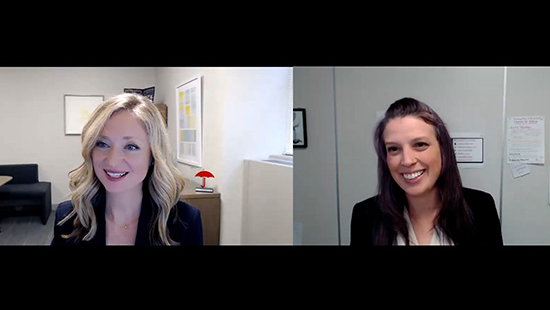Future-Focused: Strategies for Engaging Emerging Talent

Future-Focused: Strategies for Engaging Emerging Talent
September 25, 2024
Wednesday 1:00 p.m.-2:00 p.m. ET
Why and how should organizations invest in emerging talent? What are the best strategies for recruiting and retaining tomorrow’s business leaders? Shawn VanDerziel, President and CEO of the National Association of Colleges and Employers, joined Bruce Soltys, VP, Emerging Talent, and Diana Sanchez, Manager, Economic and Public Policy Insights, both from Travelers, to discuss strategies, lessons and resources for attracting emerging talent in insurance and beyond.
Watch webinar replay
[MUSIC PLAYING]
(DESCRIPTION)
A laptop appears with a title on its screen: Wednesdays with Woodward (registered trademark) Webinar Series. To the right of the laptop, a red mug features a Travelers umbrella logo. Logo: Travelers Institute (registered trademark), Travelers: 15 Years.
(SPEECH)
JOAN WOODWARD: Good afternoon, everyone. Thank you so much for joining us. I'm Joan Woodward, President of the Travelers Institute. And I'm honored to lead the public policy and educational arm of Travelers. Welcome to Wednesdays with Woodward, once again, a webinar series where we convene thought leaders and experts about today's biggest challenges. We're really so glad you're with us today.
Before we get started, I'd like to share our disclaimer about today's program.
(DESCRIPTION)
Text: About Travelers Institute (registered trademark) Webinars. The Wednesdays with Woodward (registered trademark) educational webinar series is presented by the Travelers Institute, the public policy division of Travelers. This program is offered for informational and educational purposes only. You should consult with your financial, legal, insurance or other advisors about any practices suggested by this program. Please note that this session is being recorded and may be used as Travelers deems appropriate. Wednesdays with Woodward (registered trademark) Webinar Series. Future-Focused: Strategies for Engaging Emerging Talent. Logos: Travelers Institute (registered trademark), Travelers, 15 Years, Master's in Financial Technology (FinTech) Program at the University of Connecticut School of Business, Connecticut Business & Industry Association, Insurance Association of Connecticut, American Property Casualty Insurance Association, National Association of Professional Insurance Agents, TrustedChoice.com, MetroHartford Alliance, Katie School of Insurance and Risk Management, Illinois State University, ReadyCT, Travelers EDGE (registered trademark) National Association of Colleges and Employers.
(SPEECH)
I'd also like to thank our webinar partners today. We have a lot of them, so the Master of FinTech Program at UConn, the Connecticut Business & Industry Association, the Insurance Association of Connecticut, American Property and Casualty Insurance Association, National Association of Professional Insurance Agents, TrustedChoice.com, the MetroHartford Alliance, the Katie School of Insurance and Risk Management, ReadyCT, Travelers EDGE, and the National Association of Colleges and Employers. Wow, that's a lot.
So let's get started. Today, we are focusing on recruiting, retaining emerging talent. It's a huge challenge for our industry right now and for a lot of folks outside of our industry. So a lot of you have been asking, what can companies successfully invest in for emerging talent?
What resources can smaller businesses turn to for help in attracting talent. What schools, recruiting schools, should we recruit from? How can we position the insurance industry to better compete for emerging talent? Because as you all know, there's a lot of competition from those companies outside of our industry for high potentials.
So we've got a great panel today. We'll share strategies. We're going to share some data and analytics, some resources for any size organization to help you get a handle on attracting and retaining emerging talent.
(DESCRIPTION)
Speakers. Joan Woodward, Executive Vice President, Public Policy, President, Travelers Institute, Travelers. Shawn VanDerziel, -- President and CEO, National Association of Colleges and Employers. Bruce Soltys, -- Vice President, Emerging Talent, Travelers. Diana Sanchez, Manager, Economic & Public Policy Insights, Travelers Institute, P.M.D.P. and EDGE (registered trademark) Alumna, Travelers.
(SPEECH)
So our first speaker today is Shawn VanDerziel, CEO and President of the National Association of Colleges and Employers. His association connects over 17,000 college career services, university relations and recruiting professionals. They're a leading source of information for forecasting hiring and job market trends during the transition from college to career, including tracking starting salaries-- important to know-- student attitudes and more. Shawn has been with NACE since 2020 and was previously the Chief Human Resources Officer at the Field Museum in Chicago, among other roles.
Also with us today is Bruce Soltys. He is the Vice President of Emerging Talent here at Travelers, where he leads strategy for sourcing, attracting, retaining and recruiting developing talent from colleges and universities and other outside recruiting partners. So he's been with Travelers since 2016. Has had, previously, roles on campus recruiting, leadership position at a number of other Fortune 500 companies. Bruce served on the NACE Board of Directors for several years.
And last but not least, joining us today, I am thrilled to introduce a member of my own team at the Travelers Institute. Diana Sanchez is Manager for Economic and Public Policy Insight at the Institute, a position she recently took with us earlier this year. Diana tracks our data, puts together complex presentations, and has worked on our live programming, like these webinars, as well as programming in person.
Diana has been with Travelers since 2015. She's an alumni of the Travelers EDGE program, and she'll tell you all about that. It's a wonderful program-- and a Travelers Product Management Development Program. Additionally, she's an emerging leader with the National African American Insurance Association, where she manages student mentoring programs.
So welcome to all of you. We're thrilled that you're with us today. You're going to give us very different perspectives on how to recruit these young folks. So with that, first up, Shawn, the virtual stage is yours. Thank you.
(DESCRIPTION)
Logo: National Association of Colleges and Employers. Text: New Grads Offer a Real Solution. 4.21 million College Grads in 2023. Degrees: 24% associate, 50% bachelor's, 26% graduate. 9.4 million annual average job openings in 2023. Source: educationdata.org/college dash enrollment dash statistics. Source: U.S. Bureau of Labor Statistics.\
(SPEECH)
SHAWN VAN DERZIEL: Great. Hi, everyone. It's great to be here with you today. I have a lot of information to share with you, and so I'm going to go super-fast. I invite you to take photos of any of the screen-- slides that I put up. You may want to do that, so have your phones ready, or do screenshots. And there are a few times when I have some QR codes that you might be interested in following. So we're going to dive right in.
To give you the general landscape, there were, in 2023, 4.2 million graduates from college. Those broke down in such a way that you can see about 50% of them were bachelor's degree holders. So depending upon who you're trying to recruit, the skill level, the expertise, you may be wanting to target associate degree graduates or graduate degree graduates.
Now, the job openings far outpace the number of graduates who are graduating. And that's OK because not everyone needs a college degree for their job, or there are job changers, and there certainly are other kinds of entry-level jobs out there.
(DESCRIPTION)
Early Talent at a Glance. Graduation Rate 62.2%. Destinations: 57% employed full-time, 15% still seeking. Salary: $63,721 average. National Student Clearinghouse Research Center (N.S.C.R.C.), N.A.C.E. 2023 First Destination Survey.
(SPEECH)
Next up, let's talk about early talent, just in general. What happens when someone goes to college? Well, about 62% of those who start college actually graduate from their programs.
This last year, in 2023, we know that within six months of graduation, 57% of those graduates were employed full time. At the six-month mark, after their graduation, 15% were still seeking employment. You may be wondering, well, what about the rest of them? The other percentages are broken out to things like those that pursued graduate degrees, those that went into the military, those who are just taking time off, family obligations, etc.
This may surprise some of you, but the average salary for a graduate in 2023 alone was almost $64,000. We already know, with preliminary numbers for the class of 2024, it's closer to $65,000 a year. Now, that varies based upon the type of job, the region of the country and the industry that the individual is going into.
(DESCRIPTION)
Internship Pay. On the right, a pie chart titled Type of Internship contains a breakdown of Paid 57% and Unpaid 43%. To the left of the chart, hashtag Unpaid Is Unfair appears below a Q.R. code. Text: Source: 2024 N.A.C.E. Student Survey Report.
(SPEECH)
Let's talk about internships. Internships are so important to college graduates and then obtaining both experience, but also progressing in their careers. We know students who have had internship experiences are much more likely to receive job offers. And of those interns that are out in the world, 57% of them are paid, while 43% are still unpaid.
We are not proponents of unpaid internships. We are proponents of paid internships for a whole host of reasons. And I hope you'll join us in considering joining our #UnpaidIsUnfair campaign. You can find out more about why unpaid internships aren't so great either for companies or for those individuals who are going through those programs. So I invite you to go there.
(DESCRIPTION)
Interns Retained at Higher Rates After First Year. 57%, interns still with the same organization after the first year on the job. 40%, non-intern employees still with the same organization after the first year on the job. Source: N.A.C.E. 2024 Internship & Co-op Report.
(SPEECH)
Now, there is a case for internships and why so many companies invest in interns. One of the stories I like to tell is related to retention rates. If someone interned with a company, by the end of year one, 57% of those employees are still with the company versus 40% of employees who never interned with the company. That's pretty astonishing when you're talking about very large numbers of individuals who are being hired overall.
Then let's take a look at the fifth year. So at five years in, 40% of the individuals who were interns are still retained-- if the person did not intern, only 23%, so almost double. Those are really strong numbers and a great case for bringing interns in.
(DESCRIPTION)
Students Desired Job Benefits. Guaranteed salary increases, 401K plan, 100% medical insurance paid, dental insurance, counseling. Double asterisks next to the first four benefits indicate that the benefits appeared in 2023 in the same rank order. An arrow next to "counseling" indicates that the benefit is new to the top-five list. Text: Source: 2024 N.A.C.E. Student Survey Report.
(SPEECH)
Now, let's talk about something that we all are really interested in. What are students looking for in their companies that they're going to? These are the top-five things. And this is hot off the presses from our 2024 student survey.
What they're looking for are salary increases. They want to know that they're going to get salary increases regularly. They want to know what the plan is for that.
They are very interested in 401(k) plans. This is not the same that we saw in surveys five years ago with graduates. These graduates really understand they need to plan for their future.
They want medical insurance. They want to understand that they're going to be OK in medical situations. They're interested in dental insurance. And for the first time in our survey, we saw counseling rise to the top. As we know, mental health is a large issue in our country, and that is showing up in desired benefits.
(DESCRIPTION)
Students Desired Job Attributes. An arrow next to "organization promotes healthy work culture" indicates a new desired attribute. Double asterisks next to "job offer stability" indicates that the desired attribute appeared in 2023 in the same rank order. An asterisk next to "friendly co-workers," "good benefits" and "develop applied/core skills" indicates that the desired attributes appeared in 2023. Text: Source: 2024 N.A.C.E. Student Survey Report.
(SPEECH)
Now let's take a look at job attributes. So if we widen what a student is looking for in a company to the attributes, what they really want is a company that offers job stability. They want a company that's going to be around. They want a company that's not doing a whole lot of layoffs. They want to know that they are going to be solid.
They also want organizations who promote a healthy work culture. This popped up to the top of our survey this year for the very first time. These students are different. These students who are graduating are thinking differently. These are the Gen Zers, Gen Z, and they want an organization that's going to promote that healthy workplace.
They also want friendly co-workers, good benefits, as we just saw, and very importantly, they want to develop skills, both core skills and skills specific to the job. This is really important to them. And we're going to talk some more about this later on in our conversation.
(DESCRIPTION)
Work Modality Preferred for First/Next Job. On the left, a pie chart titled Overall breaks down into 51% in-person, 43% hybrid and 6% virtual. On the right, a pie chart titled Finance, Insurance & Real Estate Industry breaks down into 20% in-person, 56% hybrid and 24% virtual. Text: Source: 2024 N.A.C.E. Student Survey Report.
(SPEECH)
Now let's take a look at work modality. A lot of you are really interested in this because we hear a lot in the news about work modality. For these students, they want to work in person. Look at that-- 51% of students in their first job want solely in person, and 43% want a hybrid environment. So take those two together.
They do want to be in person for at least some of the time for their first job. They want some flexibility to work from where they want to when they want to. But they understand the importance of being in person in that first job.
Now, what's really neat is that the insurance and finance industries are closely aligned to this with the hybrid, which is really good. If you're not offering any in-person, that may be a detriment. They do want to see some in-person.
(DESCRIPTION)
Students Top 3 Career Readiness Competencies. Students Want To Develop/Learn: 1, Communication, 2, Critical thinking, 3, Teamwork. An asterisk next to "communication" and "critical thinking" indicates that the competencies appeared in 2023. Text: Source: 2024 N.A.C.E. Student Survey Report.
(SPEECH)
All right, now let's move over to career competencies, skills and competencies. We ask students what they're looking to develop, where they think they need to develop, what they want to learn. And this is what they want to learn in their first jobs. They want to develop their communications competencies, their critical thinking and their teamwork.
(DESCRIPTION)
Employers Top 3 Career Readiness Competencies. 1, Communication, 2, Teamwork, 3, Critical thinking. An asterisk next to "teamwork" and "critical thinking" indicates that the competencies appeared in 2023. Double asterisks next to "communication" indicate that the competency appeared in 2023 in the same rank order. Text: Source: 2024 N.A.C.E. Job Outlook.
(SPEECH)
Now let's turn to employers. We survey employers also, and we know that the top three things that employers are looking for in new graduates when they start are great communication skills, teamwork skills and critical thinking skills. How do you like that? They actually match up.
This hasn't always been the case, by the way. These Gen Zers are thinking a little bit differently than previous generations. They're in a little different order, but generally, they're the same. This is good news for you as an employer.
Now let's take a look at experiential learning.
(DESCRIPTION)
Competencies Gained Through Experiential Learning. From top to bottom, a bar chart represents Communication at 86.6%, Professionalism at 79.8%, Teamwork at 75.8%, Critical thinking at 72.8%, Career & self-development at 64.1%, Industry-specific skills at 60.6%, Leadership at 52.4%, Technology at 51.2%, Equity & inclusion at 33.8%, A.I. skills at 9.1%, Other at 2.0%, and None of these skills at 0.5%. Text: Source: N.A.C.E. 2024 Student Survey.
(SPEECH)
We did a survey this last year around what students are learning in their internships. And you can see the things that we want them to be learning: communication, teamwork, critical thinking. They're actually learning those in their internships.
What we were surprised about were the low number of students who were learning AI skills. We keep hearing so much about AI, but they're actually not doing it on the job yet, at least in those internship experiences. So we hope to see that rise here soon.
(DESCRIPTION)
Insurance Industry Advice & Tips. 1, Build a diverse workforce by leveraging and highlighting the insurance industry's tendency toward hybrid work during diversity recruiting efforts. 2, Highlight the benefits & attributes students want and you offer. 3, Consider internship benefits that will increase both diversity and retention such as relocation packages. 4, Emphasize stability and wellness. 5, Emphasize A.I. skills development since you are a leader in A.I. adoption. Feature this opportunity in your recruitment efforts.
(SPEECH)
So let me just summarize really quickly. Here are some things that you can do related to these graduates. Play up your hybrid work environment. That's going to play up very well for you if you're doing it. You want to think about the benefits and attributes that you already offer that we showed and that those students want. Celebrate those.
Internships are a great way to bring employees into your company. They're going to stick around longer. And if you're going to do it, think about things that can enhance that experience. We also want you to emphasize the stability that you offer and think about wellness benefits that you can develop if you have not already developed them in your company.
And you have a real opportunity with AI to help employees to develop those skills. Those students want those skills. And if you're offering it, they're going to come to you.
(DESCRIPTION)
Like. Share. Subscribe. Engage. Five Q.R. codes appear, labeled N.A.C.E. web.org, Linked In, Competencies, Join Us, and Data & Custom Research.
(SPEECH)
Finally, I just invite you to join us in any way. If you want to learn more about anything that you heard in this presentation, I particularly invite you to follow us on LinkedIn because we post a lot of these insights almost daily on statistics and what Gen Z are looking for in new college graduates.
BRUCE SOLTYS: Thanks, Shawn, and I'll take it from here.
(DESCRIPTION)
Text: Future-Focused: Strategies For Engaging Emerging Talent. Current Higher Education Landscape.
(SPEECH)
Thank you so much, first off, for the insightful data, Shawn. NACE is a great provider of insights, and we appreciate the work that you all do. I'd like to also thank Joan and the rest of the Travelers Institute team for hosting a topic that's near and dear to me, but is also an important one, not just to the insurance industry, but certainly to our society and economy as a whole.
So building on Shawn's data, I wanted to speak a bit about the current landscape within higher education. And I'll start on the left-hand side of the page, as I think it's really important to ground us in how the career services function has evolved over time. So as you can see, the traditional supply-and-demand model between schools and employers really has been disrupted because students have just increased their ability to directly engage with companies via a variety of digital platforms.
We know from speaking with our school partners, they're overwhelmed. They're understaffed. They can't really support the students at the ratio that they wish they had. At best, we're finding that the career centers and career offices are reaching, again, best in class, 30% to 40% of the student population. Most are probably in that 20% to 25% range.
So for those that have been around career services and the relationship between companies and higher education institutions, I thought it'd be good to bring us through the sort of evolution in the charter of what career centers and how they serve their students.
(DESCRIPTION)
1970 Through 1995, Career Placement: Traditionally, students would use the office to connect with employers and find jobs.
(SPEECH)
So going back to the '70s, '80s, and even the early portion of the '90s, it really was career placement. That was the place where, if you were a student, or if you were an employer, you would go. They were the central gateway from a supply-and-demand perspective, and a central gateway in that.
(DESCRIPTION)
1995 Through 2015, Career Services: Focus on workshops to ensure student prep, such as resumes and mock interviews.
(SPEECH)
As we got into the mid-'90s and moved into the early 2010s, they sort of shifted from that career placement concept to more of a career services. There was a lot more focus on workshops, making sure that students were prepared, resume reviews, mock interviews, etc.
(DESCRIPTION)
2015 Through Present: Career Readiness: Target core skills & competencies to ensure that wherever/however a student meets an employer, they can articulate their abilities and differentiate their candidacy.
(SPEECH)
And again, as those digital platforms evolved, and students no longer necessarily needed to go through career services to find those opportunities, the career centers have sort of rebranded themselves, and more career readiness.
So what are the core skills? What are the competencies that our students are going to need when they meet an employer? No matter where or how they meet that employer, do they have the ability to articulate what their skills are and how they differentiate themselves from different candidates. I think the key takeaway, students have more options than ever in terms of access to employers via those digital platforms. And we, as employers, we can no longer rely solely on a careers office to gain that student access.
On the right side of the page, I thought it would be interesting to take a quick look at some of the recent trends as it relates to enrollment and decision factors. So we've seen in recent data from national research, the National Student Clearinghouse Research Center, that undergraduate enrollment actually grew for the first time since the beginning of the pandemic.
So there was a severe drop-off in college enrollment from the pandemic simply because of cost and the labor market and things like that. So students have gone back. The numbers are on the upswing, which is beneficial to us as employers. But they're not traditionally going back to just exclusively two- or four-year degrees. There are shorter-term credentials, certificate programs, when you look at the historical numbers as it relates to associate and bachelor's degrees.
And finally, what's driving their decisions to attend? We know that students, as well as their parents, guardians, they take several factors into consideration. But Forbes had some really interesting insight. Academic quality is still at the top of the list, cost, the ROI. Is the degree worth it?
(DESCRIPTION)
Cost including grants, loans, structure of financial aid packages.
(SPEECH)
Those are all things that are going through students' heads. And I think that grounding ourselves as employers, looking at talent like this to understand just the nuances and current landscape is really vital to anyone's strategy.
(DESCRIPTION)
Source: https:// n.s.c. researchcenter.org/current dash term dash enrollment dash estimates/#:~:text=Undergraduate percent 20 enrollment percent 20 grew percent 20 2.5 percent 20 percent percent 20 in percent 20 spring percent 2020 24 percent 20 compared percent 20 to comma of percent 20 decline percent 20 during percent 20 the percent 20 pandemic. https://www.forbes.com/sites/michael t nietzel/2023/09/26/new dash surveys dash highlight dash the dash leading dash factors dash in dash how dash students dash choose dash a dash college.\
Text: 2024 Through 2025 Opportunities. Our Emerging Talent Programs (Leadership and Development) and Entry Level Opportunities recruit for both summer intern and full-time roles. Through challenging work, we provide students and graduates with a rewarding experience that will keep them engaged and continue their professional development. Leadership Development Programs: Actuarial, Business Insights and Analytics, Data Science, Finance, Human Resources, Operations. Development Programs: Underwriting (Bond and Specialty), Underwriting (Business Insurance), Investment Analyst, Product Management, Engineering (Tech). Entry Level Opportunities: Claim Services, Customer Service, Fire Investigative, Risk Control, Legal, Marketing.
(SPEECH)
So next, I want to talk a little bit about the Travelers Emerging Talent offerings. So as you can see, this is an overview of all the things that we offer from a Travelers standpoint through our Emerging Talent team. We have leadership and development programs.
We have entry-level opportunities, internships, full-time roles. We really try to ensure that, when we engage with students, we're going to give them challenging, meaningful work. We want to give them a rewarding experience that is going to keep them engaged and continue in their professional development.
As you can see, there's a multitude of functions represented here, many of which are outside of what some would perceive to be a typical insurance career. But I will say that, as you look at functions such as business insights and analytics, data science, technology and engineering, these really serve as a vital foundation and a core enabler for many companies these days, regardless of industry. We've seen a tremendous amount of growth here at Travelers in those areas.
And again, we try to structure our programs to really meet the wants of the students as well as the needs of our business. So again, that's challenging work that's meaningful, that's impactful. It's a rewarding experience. And that continued professional development really is paramount.
(DESCRIPTION)
Summer Internship Experience. An award-winning 10-week program that serves as a key talent pipeline for our entry-level hiring needs. It is comprised of approximately 500 interns from over 170 colleges & universities working across 20 functional areas in 45 cities across the US and Canada. Below are some of the highlights and benefits that our most recent interns experienced: Executive Leadership Speaker Series, Volunteering, Rising Senior Intern Symposium. Summer Internship 10 Week Experience: Training, Learning and Development, Presentations to Senior Leaders, Mentoring and Coaching, Virtual Networking, Free Tickets to the Travelers Championship, City Guides to highlight Free Events, Social media contests/prizes, Ice cream socials, Baseball Games, Meaningful and Impactful Projects, Competitive Pay, Potential for Conversion to Full-Time Employment. Logos: CollegeGrad.com Top 100 Entry Level Employer. Winner 2024 Campus Forward Awards Recognizing Excellence in Early Career Hiring, Enterprise Early Career Programs. The Elite 50 Internships.
(SPEECH)
So as we move forward, for those on the call who have internship programs, great. Keep them going. Thank you for establishing those. As Shawn's data showed, internship pathway to full-time really is just such a valid part of the talent pipeline.
This slide shows some of the key hallmarks of what we consider really a best-in-class program that we run. So for those that have them, again, thank you. For those that are looking to build one, hopefully this slide serves as some inspiration to some of the potential elements.
We think of our internship as a 10-week interview. We can assess the talent. And they can also assess us to ensure that there's a mutually beneficial-- in terms of whether or not they're going to want to choose to pursue a career here.
We have about 500 interns every summer. That's across the U.S. and Canada. This past summer, 2024, those 500 interns came from 170 different colleges and universities, 20 functional areas and 45 cities across the country. So we're happy to be recognized with some external awards. But again, the hallmarks that you can see, we have a great team that really cultivates and builds a wonderful experience during those 10 weeks with a number of different elements that you see here outlined.
(DESCRIPTION)
Text: Recruitment Timeline. Late August/Early, September 2024: 2025 Full-Time & Internship opportunities are posted. Fall Semester: On-Campus engagement and events with academic partners. September Through December 2024: Interviews are conducted and offers are made. June 2025: Full-Time and Internship Start Dates. Please Note: This is a tentative timeline that will be dependent upon program availability and need. A graphic features a red umbrella among white umbrellas. Text: Imagine a Career with Purpose, travelers.com/careers. To the right, a Q.R. code appears with a Travelers logo at the center.
(SPEECH)
And before I turn it over to Diana, the last slide shows a view of our current recruiting timeline. So for certain programs, we will go a bit into the spring of 2025 semester. But the vast majority of our 2025 roles are really filled by the end of the 2024 calendar year.
And I think that comes as a surprise to some folks. It doesn't mean that this is the only timeline to follow. I mean, some companies recruit two years in advance. Some are recruiting through the spring semester.
But we've just found that this is what works best for us and our emerging talent needs here at Travelers. There's no right or wrong per se. I would say it has to align with your workforce plans as well as the resources that you're able to allocate to the efforts.
So we are in the thick of it right now. A lot of our team are out on campus during the fall semester, engaging with students and hosting events at our academic partners. We'll use the next couple of months to conduct interviews, make those offers, all geared towards a June start for the vast majority of the individuals that we employ, both as interns and as part of our full-time programs.
So the QR code there on the bottom right, that will lead you to our Careers site. If you or anyone you know is interested, all of our roles are posted now. And any questions, happy to take those as we get through the rest of the call. But now it's my pleasure to turn it over to someone that I have known since her days as an intern here at Travelers, Diana Sanchez. Take it away.
(DESCRIPTION)
Text: Developing Your Career Path.
(SPEECH)
DIANA SANCHEZ: Thanks, Bruce. So yeah, I'm very thrilled to share my journey with Travelers. So from leaving my home country to becoming part of the Travelers Institute, my path has been shaped by resilience, passion and the power of opportunity.
(DESCRIPTION)
Animated double arrows rotate around the speaker's photo. Text: Set Goals, Early Career Programs.
(SPEECH)
At 14, I moved from Colombia to the U.S. And despite my imperfect English, Travelers recruiters saw potential in me and gave me a chance to interview for my first-ever internship during my junior year in high school. This opportunity sparked a relationship that will change my life and taught me that, with the right support, anyone can thrive.
(DESCRIPTION)
Career Development, Internships. Logo: Travelers EDGE.
(SPEECH)
Travelers EDGE is our signature talent pipeline program and was introduced to me at a moment where my career interests were focused only on arts and the entertainment industry. EDGE stands for Empowering Dreams for Graduation and Employment. The more I spoke with graduates about the program, the more those words truly resonated with me.
Since 2007, EDGE was designed to help local students and through college to go and launch their careers in insurance and financial services. We partner with selected high schools, colleges and community-based partners to support students through five key levels First, financial support in the form of scholarships and stipends. And so this one's a really-- one that was the biggest one for me because if it wasn't because of EDGE, I would have never gone to college-- academic support, professional development, as well as professional mentoring, and peer-to-peer support.
The program helped me understand various ways to use my artistic and analytical spirit, showing me that insurance could be both creative and impactful.
(DESCRIPTION)
Text: Matching Skills, Building Skills.
(SPEECH)
I ended up deciding to go to Central Connecticut State University, which is one of the selected schools I mentioned before. And in partnership, both CCSU and EDGE played a pivotal role in my growth.
Through career coaching, I discovered my passions extended beyond human resources, which was my first interest.
(DESCRIPTION)
Networking, Developing Skills. Logo: P.M.D.P. Product Management Development Program.
(SPEECH)
Multiple internships led me to Product Management Development Program, and I learned a lot of skills, such as technical skills. It was like Excel, coding and how to tell stories with data using tools like PowerPoint.
(DESCRIPTION)
Text: Revise Goals, Give Back. Logos: Travelers Institute (registered trademark), Travelers.
(SPEECH)
After completing the internship program, I joined Travelers full time in 2020, began continuing to develop expertise in data analysis, storytelling and bringing value to key stakeholders. I also got to know the business by working with multiple areas, such as actuarial, underwriting, claims and more, which allowed me to build valuable connections and learn from different perspectives.
Today, I'm part of the Travelers Institute, where I explore the intersection of economy and public policy and the impact these topics have on the insurance industry. My passion for education and knowledge-sharing aligns perfectly with this role. I've come full circle, and I am now able to give back and show others that the insurance industry is versatile, and it is also fascinating.
Now it's your turn.
(DESCRIPTION)
The speaker's photo disappears, replaced by an outline of a face looking into a mirror. Question marks spin at each step of the career path. On the bottom right, a Q.R. code features the Linked In logo at the center. Text: Let's Connect.
(SPEECH)
Create your own career pipeline and seize resources and opportunities that align with your values, talents and passions. Always remember, you have to be open-minded and do your research. There could be multiple roles that align with your skills and interests. And in the current landscape, with many advancements such as technology, it really doesn't hurt to look for what's out there and learn new skills and expertise.
Seek resources. Look up programs available, such as the EDGE program or development programs. Don't stop networking, and make use of free online learning. And last but not least, look for future roles holistically. Find a company that not only ties with your skills and talents, but also connects with your morals and values and cares for your well-being.
To recruiters and hiring managers, I offer these insights from my journey. Look beyond perfection and emphasize transferable skills. I was 16, didn't have perfect English, didn't have any corporate experience. But Travelers recruiters still saw potential and pushed me to work harder and drive for excellence. Value diversity of thought. Based on my experience, my background and my artistic skills, this all brought unique perspectives to the table, which could lead to fostering an inclusive environment that encourages different talents and experiences to thrive.
Finally, invest in talent and internship programs. Travelers EDGE changed my life. And that support motivates me to continue bringing value to Travelers. At the same time, PMDP expanded my skill set and network. Thank you so much for listening, and I look forward to our discussion. With that said, back to you, Joan.
JOAN WOODWARD: OK, fantastic. So as you can see, we try to give you a full flavor of the industry and what's going on in the industry with regard to college grads. And then our own, Bruce, brought it home for our programming and what's available for those college grads-- and not even just college grads, as you heard from Diana, the high school students, who are looking to have a pipeline to a career. May not know that they're going to go to college or not, but trying to get folks into our industry kind of earlier and earlier.
So we hope you get-- we gave you a terrific kind of overview of what we try to do and what's going on in the world. OK, so to start us off-- and please put your questions in the Q&A function down there. We'll try to get to as many as we can. I know it's frustrating when you have a question, you put it in, and I don't answer it. But we do get hundreds of questions on these calls.
So Shawn, to start us off, your presentation gave us an overview of the state of college graduate stats and trends. Can you elaborate on the concern, though, surrounding the retiring workforce? Ten thousand people retire every day, the baby boom generation will continue for the next several years. And the potential for this college enrollment cliffs. We have two things happening at the same time, baby boomers are retiring, a lot every day, and then this potential retirement-- excuse me, college enrollment cliff we see.
SHAWN VAN DERZIEL: Yes. So to fill everyone in just on what exactly is happening, the consensus view is that, here in America, we're going to hit a peak of around 3.5 million high school graduates sometime near 2025, coming right up. And then after that, the college-age population is expected to shrink across the next 5 to 10 years by as much as 15%.
For many colleges, like those in regions of the country that have experienced decades of declining birth rates, the fallout has been painfully evident already. So you see colleges that might be closing. Many of those are regional colleges, small colleges, because the local communities, the high school graduates have already started to decline. The fear is that could happen across the higher education landscape.
And in the midst of this, between 2024 and 2030, 30.4 million Americans will turn 65, which is the largest and final cohort of the baby boomer generation. And this is known as peak 65 and will result in a record number of retirements from what we've ever seen. So there are a bunch of things happening at once. What that all means is that there is going to be a real war for talent coming up. It's going to be a little harder to find talent, particularly educated talent, for those jobs that require college education.
JOAN WOODWARD: Great. Thank you, Shawn. So Bruce, talk to us from your perspective. How are these demographic changes kind of working out in the insurance industry or other industries writ large?
BRUCE SOLTYS: Yeah, well, I go back to my freshman year economics professor, who told me on my first day of college, he goes, if there's anything you take away from this class, just remember it's supply and demand. If you just remember that, I've done my job. So he'll be proud, 25 years later, I still remember that.
So we try to stay very cognizant of the workforce demographics, the enrollment trends that Shawn mentioned, as that that's ultimately what's going to feed our pipeline. So from a talent acquisition perspective, we have to be well informed of what is happening on the talent supply side so that we can be well positioned to proactively anticipate these ebbs and flows that the talent market will undoubtedly bring.
We take a very strategic planning approach to it. While we operate on an annual cycle, we are forecasting out one, two, three years from a class perspective, understanding what's happening in terms of degree attainment. Where are we seeing students matriculate towards degrees? Where are we seeing students move away from certain degrees? You'll see a lot about the accounting shortage. Students had moved away from accounting. So what was that going to do?
So we stay in tune with the demographics. We look at what the enrollment trends are telling us. And we take a multi-year approach to planning that. That seems to be-- that's worked for us. And again, even though our hiring cycle is annual, having that multi-year planning strategy really is key and paramount to our efforts.
JOAN WOODWARD: OK, thank you, Bruce. I want to shift a bit and maybe, Shawn, to you first, talking about what students are really looking for in the benefits. So you had a slide up and talked about what they want. What about health and mental health, wellness benefits, exercise programs? A lot of large companies, obviously, have this, but how do you maybe talk to a smaller employer who may not have an organized kind of whole wellness offering?
SHAWN VAN DERZIEL: Yeah, so students today are really looking-- we've heard this for a long time, that work-life balance. But now it's getting serious with these students [LAUGHS] and these graduates that are coming out. Remember, this is the COVID generation. And they're used to a different set of circumstances. And they've seen their parents working at home, and they understand what that can be like and what benefits that has to home life.
They also have seen mental health issues just rise dramatically in our country. So what they're really looking for is a healthy work culture. They're looking for that hybrid work environment flexibility. And they're looking for counseling, as we talked about. Research for this population, we know that-- from what we've done that they value mental health services.
And so they want access to things like being able to take time off work if there is something happening from a mental health circumstance, that that is covered with family medical leave, that leave benefits are there, even in small employers, as well as the large employers. They want to understand that the benefits that they're receiving are going to provide for not just short-term stability, but also long-term stability.
So they're thinking about it in the way of those 401(k) plans. What are you doing for me, not just today, but for tomorrow to help me with my life long term? That's a part of their overall wellness. They see that as being stability and wellness.
And then you also saw that salary was on the top there. So salary increases are going to be important to them. But salary isn't the most important thing, or promotions aren't the most important thing to these graduates. They are actually looking for other things in their jobs first. Those are going to be important, but they're looking for other things first. They want to know that you as an employer are looking at them as a whole person.
JOAN WOODWARD: Got it. Got it. Let's talk just for a minute, Shawn, to you first, and then Bruce, on this hybrid work environment or in-person. I was just surprised to see most people, or not-- the majority, I think you had 51% of young people want to be in the office full time. And then a close second was the hybrid.
And that's costly, right? Because you have to give technology to people to be sitting at home in an office and then have technology in the office and some kind of-- I'm going to say kind of older folks are just-- they don't like the hybrid work environment. They want everybody in the office all the time.
We see Amazon going to five days a week. I mean, do you think Amazon or other employers who are going to demand five days a week in person might lose that talent? Is there an opportunity for our insurance companies to maybe pick up some of that talent who's gone to the five days? How are you thinking about that, Shawn?
SHAWN VAN DERZIEL: Yeah, I think there are a number of ways to look at it. I guess the best way I can put it is that this generation, they're our future. They've already been through it. They've seen it. They've lived it. In some of the most formative stages of their life, they have seen that working from home and having a flexible schedule works.
So you better believe the future of work is hybrid, period, end of story. It is, because this generation, they're going to be our future leaders, and they've already seen it work. But like generations previously, they also understand that they need to have some in-person interaction.
And they understand the value of that because their parents and those around them during these circumstances really helped them to understand that. And they understood what they lost when they weren't at school, right? When they had to do everything online. They understood, when they went back to school, how awesome that was to be with their friends. And so they understood that.
So I think, while corporate America is really struggling with do we bring everybody in, do we allow them to work hybrid, we've got all these empty buildings, we need to fill them, we're not spending our money wisely, that I think, really, this generation is going to start to change all of that once they get into leadership. And so I would certainly encourage leaders of today to really be thinking about that and to be thinking about that is the future. So why aren't we continuing the path now?
JOAN WOODWARD: OK, so embrace it. So Shawn-- thank you, Shawn. And Bruce, to you, what outcomes-- I want to talk about the outcomes regarding maybe the Travelers hybrid work arrangements. Talk about outcomes and results.
BRUCE SOLTYS: Sure. So just to piggyback off of what Shawn said, we're seeing that hunger and appetite for in-person, not just during the internship and during their work time with us, but even during the recruiting phase. Obviously, during COVID, we went 100% virtual with all of our recruiting efforts and events and things like that, but everything is back in person. The students want to meet people. They want to shake hands. They want to talk to folks. They want to learn.
But specifically, here at Travelers, I mean, for those that are starting their careers with us in one of our emerging talent programs, our surveys and data show that the overwhelming majority, they prefer hybrid. For us, that's defined as three days per week in the office-- may not be that way for every company, but that's how we define it. And we've seen that it's generated, from an outcome standpoint, higher levels of engagement. It's positively impacted culture. There's more camaraderie.
And also, the newer talent that comes in, they have proximity and physical access to subject matter experts. So they're looking for learning and development opportunities, to be able to walk over to somebody, look over their shoulder, desk share, those are all things that we hope lead to stronger retention.
JOAN WOODWARD: OK, great. So Shawn, we talked about the benefits the young students are looking for. Let's talk about the competencies that maybe some companies are looking for in the student. And then maybe if the competencies don't exactly align with the student coming out of college, how do employers help that student, almost kind of spoon-feed to get them to the competencies that are needed to do the job? So again, there might be a mismatch initially with competencies, but how are employers-- give our employers the opportunity to hear what the best strategies are for that.
SHAWN VAN DERZIEL: Yeah. So we do a lot of surveying of employers and students. And what we often see, just as you hear in the news, is that there is a misalignment between what employers believe that students are coming out with and what students believe they're coming out with. And through our research and what we're learning-- and Bruce really spoke to this at the beginning, which is that, oftentimes, there's actually not a lack of those students having the competencies that employers need, but it's the inability to communicate about those competencies.
There are very few places where someone can learn competencies as efficiently and as quickly as they can in college, in a university environment for professional-level, entry-level jobs. And they're learning. So think about it this way. They're doing classroom projects where they're asked to analyze information.
Their communication skills are being increased through classroom projects. They are working in teams on classroom projects. They're doing extracurricular activities with teams of people, etc., etc., etc. The list goes on and on. What we as interviewers often don't do well is to pull that information out of those students. So we're overlooking, and we're underestimating the value of the things that they have done.
(DESCRIPTION)
Q&A with Our Speakers. Joan Woodward, Executive Vice President, Public Policy, President, Travelers Institute, Travelers. Shawn VanDerziel, -- President and CEO, National Association of Colleges and Employers. Bruce Soltys, -- Vice President, Emerging Talent, Travelers. Diana Sanchez, Manager, Economic & Public Policy Insights, Travelers Institute, P.M.D.P. and EDGE (registered trademark) Alumna, Travelers.
(SPEECH)
JOAN WOODWARD: All right, let's go to audience Q&A. And again, this hour is flying by here. First question from Alex Zank, CFO Brew-- are current students showing strong fears of being replaced in the medium or long term by AI? And is this fear a motivator for them in making certain decisions about careers? I mean, Shawn, what are you seeing with regard to us being all replaced with AI someday?
SHAWN VAN DERZIEL: Yeah, the answer right now is, not yet. So the students today just haven't had enough experience with it. And we don't know enough. They don't know enough about what's happening with particular jobs or the industries.
But everyone's really excited about it, right? I mean, they're using the tools, all the free tools. But beyond that, they haven't had enough experience with it. Their professors aren't demonstrating it related to the professions that they're studying.
The employers aren't necessarily talking about it a whole lot yet, just as we evidenced with the internships and them getting into those internships. So we still have some time to go before we really understand how this may actually impact talent acquisition, meaning where students or where people want to work and what's actually going to happen in those jobs.
JOAN WOODWARD: And Bruce, do you have a thought on that?
BRUCE SOLTYS: Yeah, I would say, from my lens here at Travelers and what we see and hear from our program participants, I think there's been an embrace of it. It's not an avoidance, by any means.
I think there seems to be a true desire from them to understand how does it work, how can it be a productivity enhancer and serve as a complement to the existing tools, platforms that I use to my existing skill set. And we haven't seen any fear of it being a replacement for human capital from their lens.
DIANA SANCHEZ: If I may add to that, from my own experience, I actually do think that, if you use AI responsibly, it really does become what Bruce said, a productivity enhancer. I think sometimes you have all these thoughts, all these ideas, and then you're like, OK, so let me put this into ChatGPT and then what-- give me a little bit more. Organize my ideas. Help me, right?
That's kind of where I stand on it. And I think the advice should be learn other skills, learn other expertise. That's kind of where I think we should go.
JOAN WOODWARD: Right. OK, so don't just ask ChatGPT about how to fix your espresso maker you can't figure out.
DIANA SANCHEZ: [LAUGHS]
JOAN WOODWARD: Got it. OK, use it in your job. So a quick rapid fire-- we have a lot of questions coming in. So let's talk about the differences in what appeals to a Gen Zer versus a Gen Alpha. And do we need to speak to our young people or emerging talent differently in terms of what they're looking for? Bruce, maybe to you first and then Shawn.
BRUCE SOLTYS: Yeah, I don't know that it's so much a difference. I think we try to have a cognizance and understanding of what motivates them, what drives them, and bringing them into the conversation around our planning efforts. What would you like this programmatic experience to entail?
We survey them. We try not to over-survey them. But we try to create an environment where their thoughts and feedback are welcome so that it can then influence the evolution of our programs.
SHAWN VAN DERZIEL: For--
JOAN WOODWARD: OK, great.
SHAWN VAN DERZIEL: Yeah, I would just say Gen Alpha, which is the next generation that will enter the workforce, they're not even close yet. So we haven't gotten there. They're just going to be entering college. We don't know what they're going to want or need. We can't study them quite as well yet or relate it to the world of work.
We do know, with Gen Z, as was evidenced in a lot of things that we went through today, they are a little different. So it is worth understanding the generation a little bit better without making those assumptions because they will have an impact in a very different way.
JOAN WOODWARD: OK, great. Question coming in from Robbie Ryan. Robbie wants to know-- they just started an internship program, and they can't believe how much, for high school students, it opened their eyes to kind of hooking a young, talented person who might not finish college or might just want a two-year degree. How do we try to go into high schools and make the case that the insurance industry is something that the high school should want to work with us on? What are some strategies there, Bruce? Maybe to you.
BRUCE SOLTYS: Yeah, I would say, it's all about branding. Younger generations, they don't have a lot of exposure to insurance from a consumer standpoint. So we've got to get in front of them as well as the key influencers in their lives within those academic institutions.
When we go on campus, and we talk to students and faculty, the approach we take in those conversations, insurance is the underpinning or foundational element for a society to function. Without insurance, there's no travel, there's no construction. And we're really at the cutting edge of so many different things.
That message resonates. That message grabs their attention. So articulating the impact that insurance can have on its customers is one that's very well received. So educate, educate, educate on the brand.
JOAN WOODWARD: OK, wonderful, wonderful. So this question comes from James Jones. Are there any particular jobs that the industry is having challenges filling? Sales, analytics, computer science, anything like that?
BRUCE SOLTYS: I would say, again, technology and innovation is what's going to propel Travelers forward. But many other companies are looking at skills in that sense. So we've seen a huge influx of needs within our organization. And I think a lot of other companies, regardless of industry, have looked for a skill set from a big data, predictive analytics and so forth.
So I think you'll continue to see those skill sets being in high demand. It's such high demand that some folks have opted not to go for four-year degrees and instead coding boot camps and shorter-term credentials. So I think you'll continue to see that evolve over the next couple of hiring cycles, for sure.
JOAN WOODWARD: Right. Well, this hour has flown by. I cannot thank you-- we're going to have another session on this because there's so much more to dig deeper into. So we're really thrilled that you're here. And thank you so much to all three of you for being here.
(DESCRIPTION)
Text: Wednesdays with Woodward (registered trademark) Webinar Series. Take Our Survey. Link in chat. Upcoming Webinars: October 2nd – Get Cyber Ready: Best Practices for Navigating Today’s Biggest Threats. October 9th – Mastering Market Shifts: What Independent Insurance Professionals Need to Know. October 23rd – A.I. in Action: The Future of Risk Management Through Predict & Prevent (trademark). On the right, a Q.R. code features the Travelers logo at the center. Text: Register.
(SPEECH)
To my audience, if you enjoyed our conversation, we've got a lot coming up for you. We have an exciting lineup in the next couple of weeks. So October 2, we're going to do an event on cybersecurity. October 9, we have the CEO of the Big "I," Charles Symington, coming to talk about distribution. And then, October 23, we have Peter Miller of The Institutes talking all about AI, and so more exciting news.
(DESCRIPTION)
Fall 2024 National Cybersecurity Tour. On the left, a graphic titled Cyber: Prepare, Prevent, Mitigate, Restore (registered trademark) appears. On a United States map, Travelers logo location pins appear on Washington D.C., Philadelphia, Pennsylvania, and Irvine, California. Logo: Travelers Institute (registered trademark), Travelers: 15 Years. Text: 2024 Fall Tour Dates: September 24, Washington D.C. Metro Area, October 10, Irvine, California, October 30, Philadelphia, Pennsylvania. On the right, a Q.R. code features the Travelers logo at the center. Text: Register for a live event and get more details.
(SPEECH)
Scan the QR code for more information on how to register for our Cybersecurity Tour this fall. We have lots of live events, and we'd love to have you in Irvine, California, or in Philadelphia. So scan that QR code, fill out our survey, tell us how we did today. We're so thrilled. And Shawn, Bruce, Diana, we'll have to have you back because it was just an amazing whirlwind of knowledge and sharing. So thanks to you all, appreciate you being here.
(DESCRIPTION)
Wednesdays with Woodward (registered trademark) Webinar Series. Watch: travelersinstitute.org. Logo: LinkedIn. Text: Connect, Joan Kois Woodward. Listen wherever you get your pods. Logos: Travelers Institute (registered trademark). Travelers. travelersinstitute.org.
[MUSIC PLAYING]
Listen to the podcast
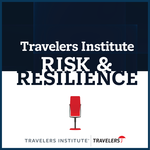
Tune in to “Future-Focused: Strategies for Engaging Emerging Talent,” available on Apple Podcasts® and Spotify.
Learn more, explore the most recent episodes and subscribe to the Travelers Institute Risk and Resilience podcast.
Summary
What did we learn? Here are the top takeaways from Future-Focused: Strategies for Engaging Emerging Talent:
Demographic changes may mean stiff competition for talent in the future. Over the next six years, 30.4 million Americans will turn 65, VanDerziel said. And after decades of declining enrollment, the college-age population is expected to shrink by 15% in 2025, VanDerziel said, adding that these factors may lead to a shortage of talent, especially for jobs that require college degrees. What does that mean for employers? At Travelers, it means looking three years out to plan for demographic and enrollment trends. “Even though our hiring cycle is annual, having that multiyear planning strategy is key and paramount to our efforts,” Soltys said. “As employers looking at talent, it’s vital we understand the nuances in the current landscape.”
Employers may want to target job seekers with nontraditional degrees – or without degrees, depending on the job, VanDerziel said. Of the 4.21 million U.S. college graduates in 2023, 24% received an associate, 50% a bachelor’s and 26% a graduate degree. “The job openings far outpace the number of graduates and that’s OK because not everyone needs a college degree for their job,” he said, adding that job changers also can fill positions. Within six months of graduation in 2023, 57% of graduates had secured full-time employment and 15% were still looking, while the rest followed other paths, he said, adding that the average salary for a graduate that year was $63,721, and it’s on the rise. However, students are not just enrolling in traditional two- or four-year degree programs but also other credentials and certificate programs, Soltys said. Students and parents take several factors into consideration, including academic quality, cost and return on investment, he said.
Internships are a top way for employers to engage with emerging talent, VanDerziel said. “Internships are so important to college graduates in both obtaining experience and progressing in their careers,” he said. Over half (57%) of internships are paid, he added, noting that unpaid internships are less beneficial for both companies and interns.
Diana Sanchez, a valued Travelers employee, serves as an outstanding example of the power of internships. “My path has been shaped by resilience, passion and the power of opportunity,” Sanchez said, adding that she moved from Colombia at age 14 and joined the Travelers EDGE® program, which is designed to help local students attend college and launch careers in insurance and financial services. The program offers scholarships and stipends, mentoring and peer-to-peer support. Sanchez joined Travelers full time in 2020 and has worked in multiple areas and learned tech skills, coding, data analysis, storytelling and more. “This allowed me to build valuable connections and learn from different perspectives,” she said. “I’ve come full circle and am now able to give back and show others that the insurance industry is versatile and fascinating.”
In addition to good benefits, future grads want to work for a stable company that offers a healthy work environment, VanDerziel said. The top benefits soon-to-be graduates seek include guaranteed regular salary increases, a 401(k) plan, 100% paid medical insurance, dental insurance and counseling, according to the 2024 NACE Student Survey. Counseling rose to the top five for the first time this year. The desired benefits have changed over the past five years, he added. “These graduates really understand the need to plan for their future – what are you doing for me not just today but tomorrow,” he said. “As we know, mental health is a large issue in our country, and that is showing up in desired job benefits,” he said, adding that potential hires “want to know that you as an employer are looking at them as a whole person.”
Up-and-coming talent strongly prefers in-person or hybrid work, VanDerziel said. When surveyed about their work modality desires for their first or next job, 51% of students stated they prefer in-person, 43% prefer hybrid and only 6% prefer fully remote work, VanDerziel said. Those numbers are a little different for the insurance and financial industries, with 56% wanting hybrid work, 24% virtual and 20% in-person, he added. “They do want to be in person for at least some of the time for their first job,” he said, adding that they also want some flexibility. As the “COVID generation,” students currently in college saw the family benefits of flexible work during the pandemic but also deeply missed the value of in-person interaction when they had to attend school fully online, he said. “The insurance and finance industries are closely aligned to this with hybrid, which is really good,” he said.
The skills and competencies new graduates want to learn align with those that employers prize, VanDerziel said. In their first jobs, new graduates want to develop communication, critical thinking and teamwork skills – and those are the top three skills employers are looking for in new hires. “They actually match up, and that hasn’t always been the case,” he said. “They’re in a little different order, but generally they’re the same.” Even better news: Students are learning these skills in their internship experiences. One surprising statistic, though: Fewer than 10% of students are learning AI skills. This is an opportunity for the insurance industry, where employers can emphasize the opportunity to develop AI skills. “Students want those skills, and if you’re offering it, they’re going to come to you,” he said.
Travelers offers entry-level opportunities through internships and full-time roles. Travelers’ Emerging Talent Programs include a 10-week summer internship program, entry-level opportunities in an array of areas, from claims to customer service to fire investigations and risk control, as well as leadership development programs in fields ranging from actuarial to data science to finance and human resources, Soltys said. “We try to structure our programs to meet the wants of students as well as the needs of our business,” he said. “They want challenging work that’s meaningful, impactful and a rewarding experience. And continued professional development is paramount.”
Employers can emphasize the diversity of roles within the insurance industry to attract talent, Sanchez said. For example, she says before she joined the Travelers EDGE program as a high school student, she had her heart set on becoming an artist or pursuing another career in a creative field. But she was drawn to insurance when she experienced the diversity of roles available, the opportunity to create your own role and the ability to use creativity within your work, she said. Her advice for employers: Don’t focus just on skills a young person may have, but sit down, talk to them and get to know their background, interests and true passions. “One thing I would say to recruiters is to look beyond perfection, look beyond what the paper says and really look at what that person could bring to the table,” she added. Also, play up what the insurance industry offers: “Make it fun and engaging and offer talent the opportunity to bring value,” she said.
Speakers

Bruce Soltys
Vice President, Emerging Talent, Travelers

Shawn VanDerziel
President and CEO, National Association of Colleges and Employers

Diana Sanchez
Manager, Economic & Public Policy Insights, Travelers Institute; Graduate, Product Management Development Program, Travelers; and EDGE® Alumna, Travelers
Host

Joan Woodward
President, Travelers Institute; Executive Vice President, Public Policy, Travelers
Presented by
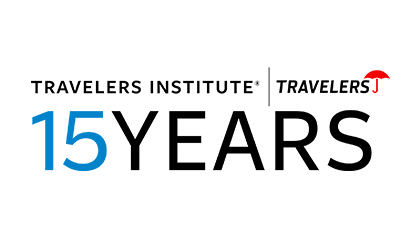
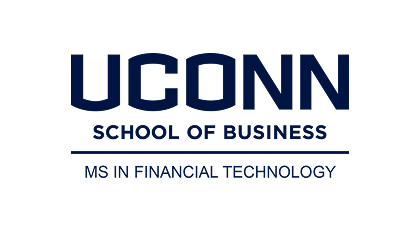
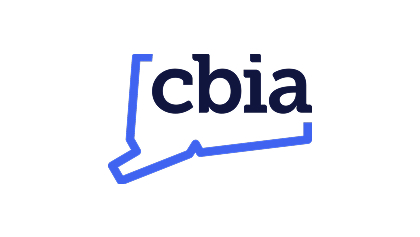
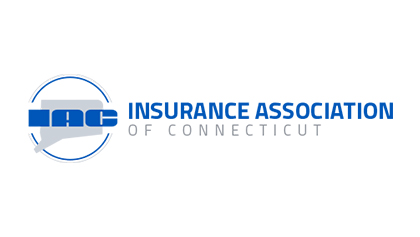
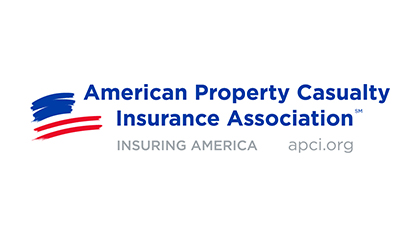
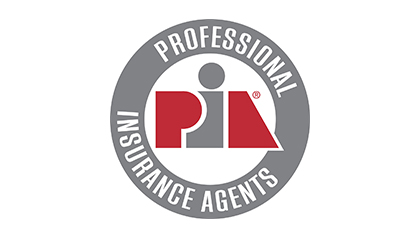
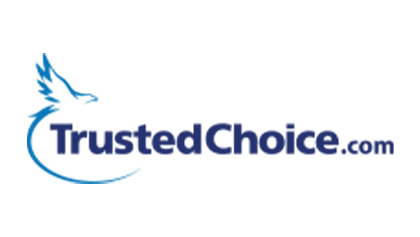
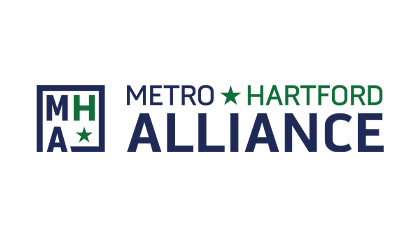
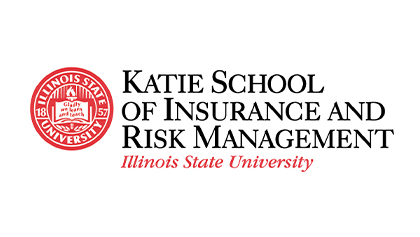
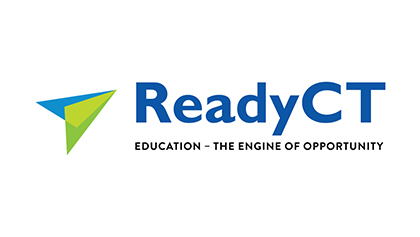
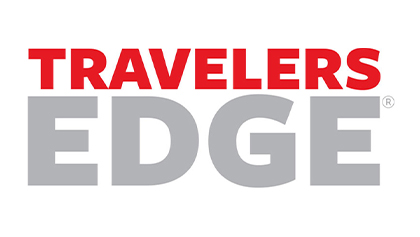
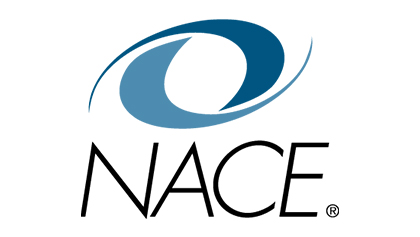
Related content
What Do Today’s Students Want from Insurance Employers? Insights from Gamma Iota Sigma
Travelers Executive Vice President and President of Personal Insurance Michael Klein sat down with Gamma Iota Sigma Executive Director Grace Grant to discuss what today’s insurance students are looking for in their future employers.

Recruiting Your Rising Stars: Engaging the Insurance Industry’s Emerging Talent
Who are the students and emerging professionals in insurance and risk management today, and what are they looking for in future employers? In this webinar, we discussed how the insurance industry can create meaningful career pathways and rewarding careers for tomorrow’s rising stars.
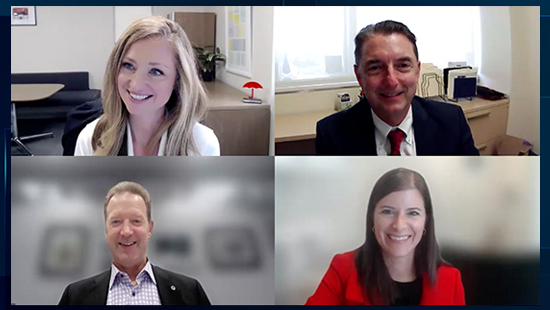
An Insurance Agent's Field Guide to Generation Z
Are you wondering how to reach Gen Z, the 69 million young Americans born between 1997 and 2012? In this webinar, we explored Gen Z's beliefs, values and expectations around insurance.
